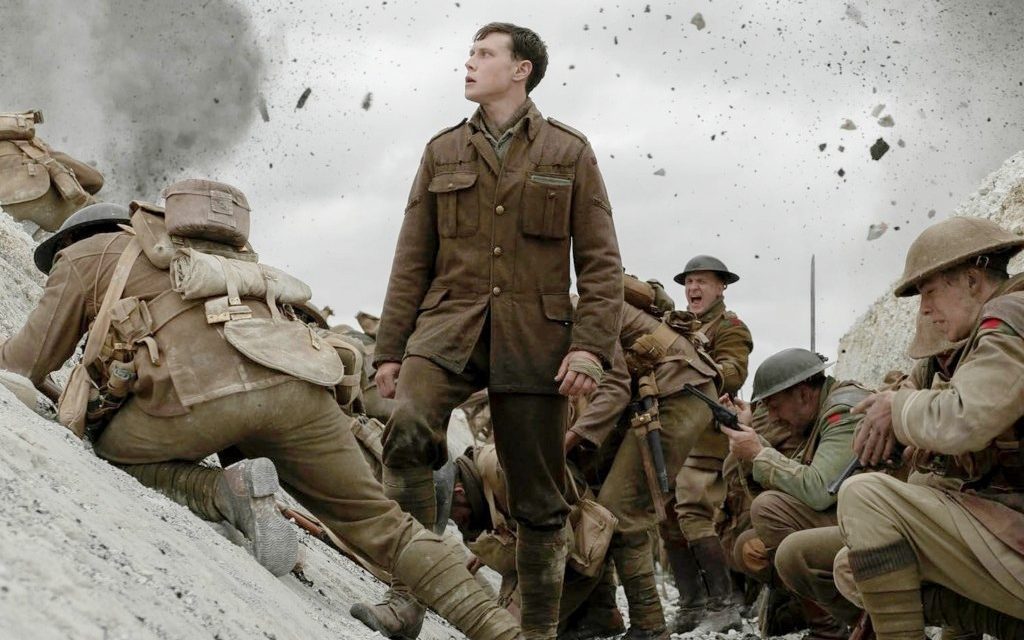As someone who hates war films, I was involved in all the action and emotion 1917 had to give. Indeed, it is stunning. You should see it on I-MAX screen and be immersed in this powerful drama.
Directed by Sam Mendes, who won an Oscar for his first feature, American Beauty, 1917 follows a simple storyline during the First World War: two British soldiers are sent to cross the enemy territory to deliver an urgent message to their troops. Yet, or maybe with the help of the simplicity of the plot, the film captures a wide arrow of emotions.
The film is structured as a one long take, meaning the cuts between the scenes are invisible as if all the action was captured in a single shot. This technique allows the viewer to experience the tension in sync with the soldiers. “Time is the enemy,” as the poster says. With beautiful tracking shots and brilliantly montaged sequences, the viewer never loses attention. The film ably absorbs you in for 119 minutes.

There is a great balance between scenes of brutal action and heart-warming emotion. The film is intense when the soldiers face the ugly face of war, and beautifully sentimental when humane feelings are involved. This rollercoaster of emotions not only works as a breather to the viewer in between nerve-racking scenes but also help convey the message that a war has many layers other than killing and destroying.
Even though there are more layers to it, it is a fact that war brings death. Accordingly, the film is full of death. The destruction and rottenness the war brings is depicted in all its awful angles, as one would expect. Yet, a beautiful sound score accompanies all these scenes, making them heart breaking when they need to be, or tensing them up even more.
We don’t get to see many faces, but the ones we see definitely grab our attention, for instance: Colin Firth, Andrew Scott, and Benedict Cumberbatch. Other than them, the main characters George MacKay and Dean-Charles Chapman have great performances to convey a soldier’s determinism together with a genuine fear and distress.

The one aspect that bothered me about the film is the only female character. She is everything that the conventional understanding of Hollywood’s women implies. I mean, she is mother to a child that is not hers. It is a Virgin Mary fantasy: a mother without intercourse. She is caring; she gently touches and cares for the soldier’s wounds. She provides him with the information that the male character needs to accomplish his mission. Magically, the soldier also provides for her; he has the one thing she needs: milk for the baby. “She” is frightened, worried, and passive in contrast to “he” who is heroic and brave. This character is precisely what Hollywood expects of the female. So yes, it bothered me.
The last scene resembles very much of the first scene, leaving us at where we started. My interpretation of this is that war doesn’t leave us anywhere better than before. Is it a happy ending? How can it be? How can one triumph under war circumstances?
The film has 10 Academy Award nominations; we’ll see on Sunday which Oscars it will take home.
